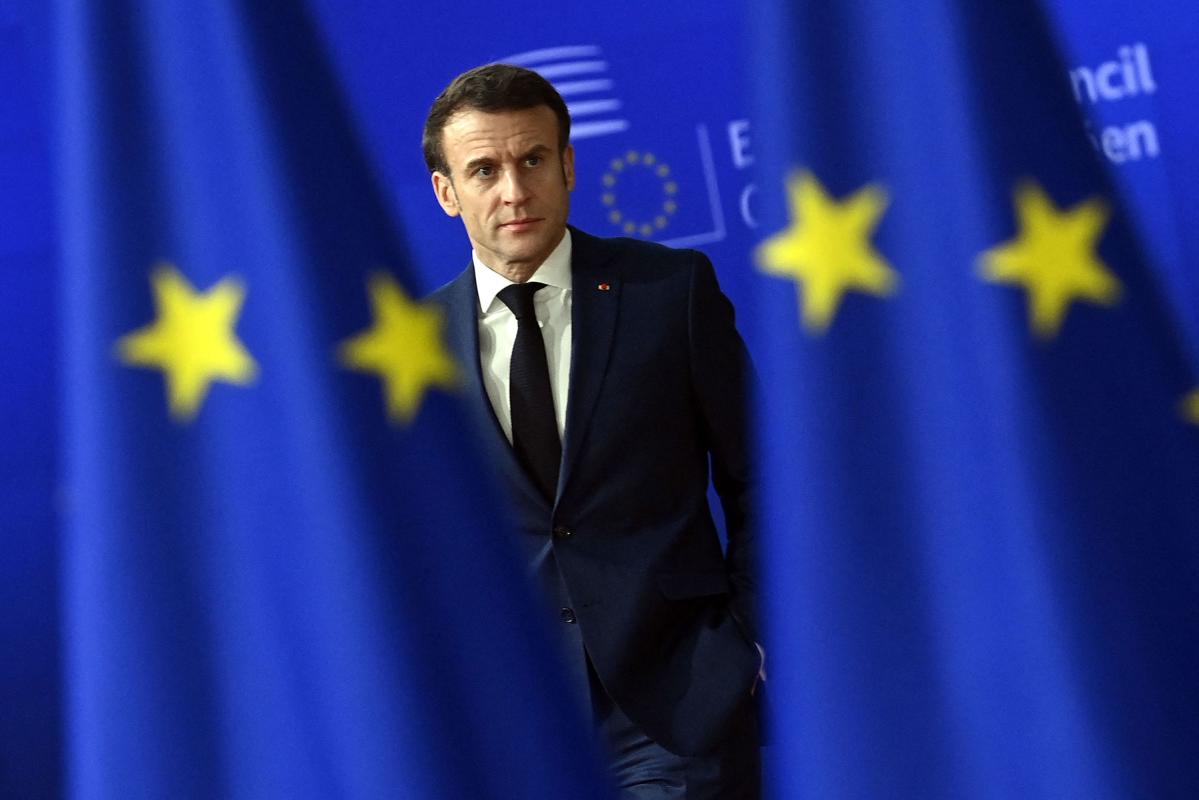
(Bloomberg) — Emmanuel Macron is calling for the European Union to come up with a robust answer to Joe Biden’s green subsidy package known as the Inflation Reduction Act that includes common funding.
Most Read from Bloomberg
“We must go faster, simplify our rules and provide a macroeconomic answer and a level of aid at the national and European levels that allows us to match what the Americans have done,” the French president told reporters before a meeting of EU leaders in Brussels where they will discuss the issue.
Macron and his EU counterparts have been outspoken over the $369 billion climate and tax law, which they say provides an unfair advantage to North American industries, including electric-vehicle producers. The EU has said it may take the US to the World Trade Organization over the law.
“Although we are allies, we must have this response to strengthen our industrial base and remain competitive,” he said, adding that the response should include “European instruments and common funding.”
EU Divisions
The EU leaders will task the European Commission, the bloc’s executive arm, to propose how to mobilize national and EU tools to safeguard Europe’s economic, industrial and technological base, according to a draft of the summit conclusion seen by Bloomberg.
Commission President Ursula von der Leyen unveiled an initial plan on Wednesday that would give member states more latitude to invest in their own companies and that would redirect existing EU money to firms in need. But the leaders will need to address how far reaching the commission proposal will be and, importantly, if it will include new money.
German Chancellor Olaf Scholz has backed a more moderate response to the American climate and tax law, pushing to streamline how existing EU funds are distributed and increasing incentives at the national level.
“We will also talk about the competitiveness and future viability of our economy, in particular our joint handling of the Inflation Reduction Act,” Scholz told reporters ahead of the summit. He also hinted there would be no immediate action taken on Thursday, saying the topic would come up “more often and repeatedly” in the coming months.
Dutch Prime Minister Mark Rutte echoed Scholz’s proposal by pushing back against the idea of joint funding options. “We are not big fans of new money,” Rutte said. “We have to look at existing money and how to use that.”
Sovereignty Fund
The German and Dutch approach has irked some that are pushing for a more rigorous response, arguing that not all nations have the same fiscal capacity to support their domestic companies.
“Member states are not equal when it comes to delivering state aid. Some can deliver a lot more than others,” the EU’s competition chief, Margrethe Vestager wrote in a blog post on Thursday. “That’s why we propose to introduce a new sovereignty fund, as a complementary funding to ensure all European countries can benefit from the green transition instead of just a few.”
Germany is planning to spend more than €10 billion ($10.6 billion) to invest in companies switching to clean technologies, according to people familiar with the plan.
“Today we see that too often countries are trying to install a scheme on their own and it looks a bit like a game of the deepest pockets,” Belgian Prime Minister Alexander De Croo said on Thursday. “And yes, some countries may think they have deeper pockets, but in a few months we’re all at the end of what you can do.”
–With assistance from Alberto Nardelli, Jillian Deutsch, Jorge Valero, John Ainger, Lyubov Pronina, Niclas Rolander, Slav Okov and Krystof Chamonikolas.
Most Read from Bloomberg Businessweek
©2022 Bloomberg L.P.




